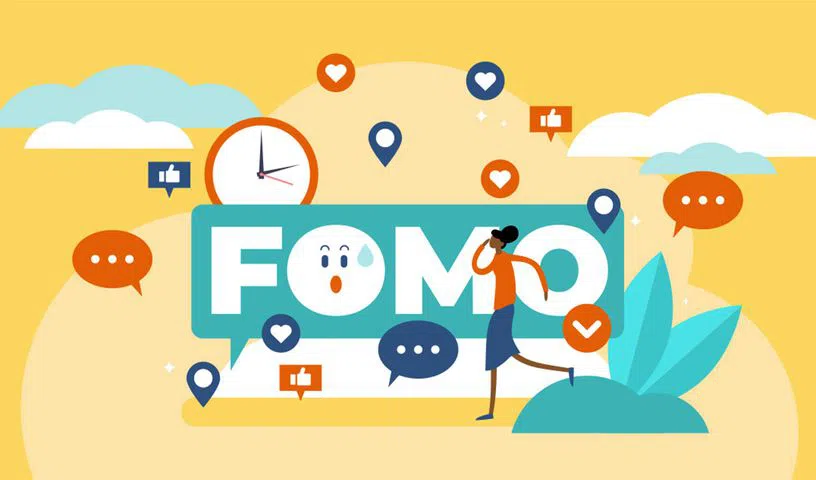
Researchers tried to learn what really drives intense feelings of FOMO – which explains why a run-of-the-mill meeting might feel more crucial than an over-the-top vacation
New York: Imagine you’ve planned the trip of a lifetime for your animal-loving family: a cruise to Antarctica with the unique opportunity to view penguins, whales and other rare wildlife. Your adventure-loving kids can kayak through fjords, plunge into icy water and camp under the Antarctic sky.
But rather than being ecstatic, as you anticipated, your kids whine about skipping an after-school scout meeting at a neighbour’s house. Missing this ordinary weekly event triggers such intense FOMO – “fear of missing out” – for them that they don’t want to go on your amazing expedition.
If this kind of debacle sounds familiar to you – or at least if you find it perplexing – you’re not alone.
Over the years, researchers learned what really drives intense feelings of FOMO – which explains why a run-of-the-mill meeting might feel more crucial than an over-the-top vacation.
FOMO’s real trigger
People use the term FOMO in many different ways. In the research, the social scientists focused on a very specific type of FOMO: the kind that occurs when people miss out on events that involve valued social connections. With this kind of FOMO, they found that the pain of missing out is not related to missing the actual event or opportunity – although that could be there as well.
The FOMO, they studied happens when people miss the chance to bond with friends, co-workers or teammates they care about. So, the critical part of FOMO is missing out on interactions with people you value.
FOMO about a group dinner at a restaurant isn’t really about the food and great lighting. Nor is FOMO about a concert just about the band’s performance. Instead, it’s about the lost opportunity to connect and make memories with people who are important to you.
Why is this upsetting?
Imagine the scenario where all your best friends go out to dinner without you. They bond and make lasting memories with each other – and you’re not there for any of it. If they get closer to each other, where does that leave you?
What happens to your social relationships and your sense of belonging? Do you become a less important friend? Less worthy of future invites? Or even kicked out of the group altogether? The anxiety of FOMO can begin to spiral.
People with what psychologists call an anxious attachment style chronically fear rejection and isolation from others. Because FOMO involves anxiety about future social belonging, it may not come as a surprise that people who are naturally more anxious about their friendships tend to get more intense FOMO.
When people were asked to scroll social media until they encountered something social they missed, we found that the more anxiously attached a participant was, the more intense FOMO they experienced.
Not just missing Coachella
Getting FOMO for an amazing event you can’t attend makes sense. But if FOMO is less about the event itself and more about the social bonding, what happens when you miss something that’s not really fun at all?
It was found that people anticipate FOMO even for unenjoyable missed events. As long as there is some form of missed social bonding, feelings of FOMO emerge. One of the studies found that people anticipated more FOMO from missing an un-fun event that their friends would be at, than a fun event without their friends.
For better or for worse, sad and stressful events can often be emotionally bonding: Going to a funeral to support a friend, cleaning up the mess after a party, or even white-knuckling through a harrowing initiation ceremony can all offer opportunities to forge stronger connections with one another. Stressful contexts like these can be fertile grounds for FOMO.
How to fend off FOMO
Popular discussions about the negative consequences of FOMO tend to focus on the FOMO people feel from compulsively scrolling on social media and seeing what they missed out on. Consequently, much of the suggested advice on how to mitigate FOMO centers on turning off phones or taking a vacation from social media.
Those recommendations may be tough for many people to execute. Plus, they address the symptoms of FOMO, not the cause. The finding that the core of FOMO is anxiety about missed social relationships yields a simpler strategy to combat it: Reminding yourself of the last time you connected with close friends may provide a sense of security that staves off feelings of FOMO.
Reminding yourself of the meaningful relationships you already have and reaffirming your social belonging in the moment may help combat the rush of anxiety that is characteristic of FOMO. And missing out on social bonding experiences doesn’t have to be anxiety-provoking.
A recent wave of counter-FOMO programming called JOMO, or “Joy of Missing Out.” To quote Stuart Smalley, the fictional self-help guru of 1990s “Saturday Night Live,” reminding yourself that “I’m good enough, I’m smart enough, and doggone it, people like me!” might be just the trick to mitigate FOMO.







